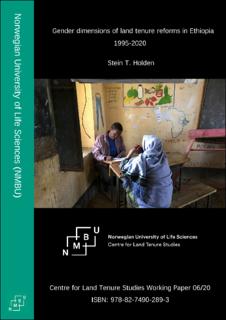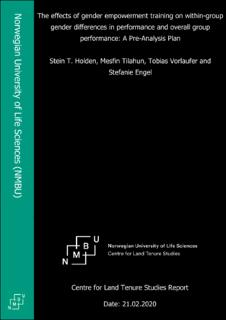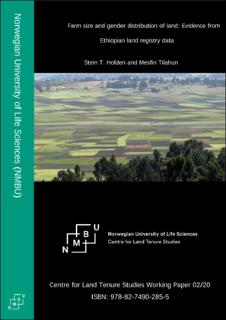Perspective: The importance of water security for ensuring food security, good nutrition, and well-being
Water security is a powerful concept that is still in its early days in the field of nutrition. Given the prevalence and severity of water issues and the many interconnections between water and nutrition, we argue that water security deserves attention commensurate with its importance to human nutrition and health. To this end, we first give a brief introduction to water insecurity and discuss its conceptualization in terms of availability, access, use, and stability. We then lay out the empirical grounding for its assessment.
COVID-19, Indigenous peoples, local communities and natural resource governance
We report on how the COVID-19 pandemic is affecting Indigenous peoples and local communities (IPLCs), especially those who govern, manage and conserve their lands and waters. We explore the themes of access and use of natural resources, solidarity, decision-making, the role of governments and IPLCs in managing COVID-19, and the uptake of traditional medicine. These themes are explored through a global online survey in English, Spanish and French.
Land, Women, Youths, and Land Tools or Methods: Emerging Lessons for Governance and Policy
Women and youths encounter problems with access to land, as well as securing tenure in land resources [...]
Women success stories from South East Europe
Women’s economic empowerment is essential in promoting equality between women and men and is a precondition for sustainable development.
First Continental Report on the Implementation of Agenda 2063
The implementation of Agenda 2063 has gathered momentum at all levels. The continent has made some remarkable
progress towards attaining the goals defined in Agenda 2063’s First Ten-Year Implementation Plan as outlined in this
report.
Legislative approaches to sustainable agriculture and natural resources governance
Influenced by international trends, as well as in response to population, climate, resource and development needs, the standards, norms, mechanisms and incentives in natural resources law at the national level have evolved in recent years. Natural resources laws are influenced by developments in the international arena, either through international treaties that are binding or through ‘soft law’ instruments that are not legally binding but nevertheless have widespread adherence among governments, or that provide principles that guide and shape national legislation.
Gender dimensions of land tenure reforms in Ethiopia 1995-2020
This chapter investigates how land tenure reforms in Ethiopia have influenced the position of women in terms of land tenure security, access to land, decision-power over land within households, as well as the gendered impacts of these tenure reforms on land investments, land productivity, land renting, and household consumption welfare. It is based on a careful screening of the relevant literature based on its quality and critically examining the reliability of the causal effects in each study.
The effects of gender empowerment training on within-group gender differences in performance and overall group performance: A Pre-Analysis Plan
This Pre-Analysis Plan is for a Randomized Control Trial (RCT) for recently formed youth business groups in Tigray Region of Ethiopia. Resource-poor rural youth are given a business opportunity by being allocated a rehabilitated land area where they can establish a joint business. They are organized as a primary cooperative and self-organize with a board of five members including a leader and a vice leader. The overall objective of the project is to identify factors that enhance the performance and sustainability of formal youth groups as a business and livelihood option.
Farm size and gender distribution of land: Evidence from Ethiopian land registry data
Land is an essential asset for the livelihood and welfare of rural households in agriculture-based rural economies. This study utilizes land registry data from the First and Second Stage Land Registration (FSLR and SSLR) Reforms that took place in 1998 and 2016 in Tigray region of Ethiopia, the first region in Ethiopia to implement land registration and certification. Second Stage Land Registration and Certification (SSLR&C) provided households with parcel-based certificates with names of all holders.
Tierra y desigualdades de género
El presente informe se constituye, primero, como una síntesis analítica y articulada de los informes de campo de las 4 comunidades campesinas. En ese sentido, a partir del examen comparativo de los casos desarrollados, nos abocamos a extraer patrones, determinar tendencias o resaltar excepciones que sean pertinentes según los objetivos del estudio.
Land tenure security for women: A conceptual framework
While strengthening women’s land rights is increasingly on national and international agendas, there is little consensus on how to understand women’s tenure security. Analyses of women’s land rights often use very different definitions of land rights, from formal ownership to women’s management of plots allocated to them by their husbands. This paper identifies aspects of women’s tenure that should be included in indicators. It then provides a conceptual framework to identify the various dimensions of women’s land tenure security and the myriad factors that may influence it.






